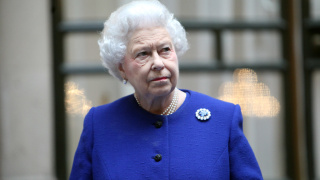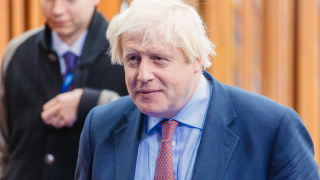Boris Johnson: A Brief Evaluation
I have been asked to comment on Boris Johnson’s appointment as Leader of the Conservative Party and therefore as Prime Minister. Since I recently called him “a bag of living offal,” my view is unlikely to be positive. However, I will try to be fair. More to the point, I will try to relate this latest turn of events to my general analysis of British politics.
Last month, I wrote that membership of the European Union was a peripheral issue for our ruling class. The main agenda for this class is to carry through a neo-Puritan remodelling of our institutions, and indeed our minds. The details of a customs and regulatory union are less important than control of education, the media and the criminal law. This being said, membership is useful so far as it blurs the lines of accountability. It is also an article of belief among some elements of the Ruling Class. For this reason, the verdict of the 2016 Referendum was unwelcome. It meant a diversion of effort from the main purpose. It upset various important people. The obvious solution was to give us a minimal departure that would satisfy us, but would keep in place those elements of the European Project that really are important to the Ruling Class.
Here, I come to a digression on the nature of how we are governed. There is no cabal of evil persons directing all events and appointments from behind the scenes. This is generally not how ruling classes operate. A more realistic model can be taken from Ian Kershaw’s analysis of the National Socialist revolution in Germany. This proceeded with limited central direction. Before 1939, the leaders were concerned mostly with foreign policy, after that with fighting a big war. Instead, the revolution was decentralised. Reliable men were put in key positions and told to “work towards the Fuhrer” – that is, to act in any situation as they might imagine Hitler himself would act. The result was often administrative chaos. The benefit was that the leadership could concentrate on what it saw as the essentials, and more local knowledge could be used in the overall revolution than would otherwise have been possible.
This is largely how things work in England. Our own transformation is not driven by detailed orders from the Shadowy-Ones-on-High, but by creating a bias within every useful institution to those who are broadly in favour of the transformation. The benefit is a constrained diversity of approaches that can be presented as a genuine diversity of opinion. The disadvantage is that executive power lies in this country where it has since 1701 – that is, in the hands of the Ministers of the Crown, who are accountable to the House of Commons. If the Prime Minister turns out to be a fool, and the other ministers are too cowardly to stab him in the back, there is no easy way to remove him.
At last, however, she was forced out. It was always so likely that Boris Johnson would replace her that there was no need to help him. With the votes that mattered effectively in the bag, liking him or disliking him could be an open issue within the Ruling Class and its various clients. His job is to produce any departure from the European Union that will satisfy a majority of those who have been accidentally and annoyingly radicalised by the previous botched effort. This means a more genuine departure than was ever intended. As said, however, membership is a peripheral issue. If there are dangers to giving the people something of what they want – the danger, that is, that they will be tempted to start demanding much else – some deal or No Deal are both manageable risks in the short term.On balance, Theresa May was more stupid than malevolent. Her job was to produce the minimal departure I have mentioned. The question of who wrote her Withdrawal Agreement is less important than the fact that few who mattered wanted or dared to accept it. She should never have thought it would be accepted. Having discovered it was unacceptable, she should have tried something else. Instead, she tried four times to ram it through the House of Commons. She also reached out to a Labour leader who is feared or just hated by important strands within the Ruling Class. At first, the damage was confined to the possibility of a Labour Government. It then widened, with the emergence of the Brexit Party, to the threat of a general delegitimisation of the system as it has emerged since 1997, or perhaps 1979.
If I am right, the Government’s lack of a majority in the Commons will not be allowed to stand in the way of producing an acceptable departure. Officials who have pretended to incompetence will suddenly turn competent. Those who have been actually incompetent will be replaced. The Government will go about the world calling in favours or trading favours. As I wrote last year, we are objectively in a strong position to make demands on the Europeans, the Americans, the Chinese and everyone else who matters. We can make demands with limited reciprocity. It would be useful to have another Talleyrand in the Foreign Office. But Dominic Raab will probably do.
Of course, if we do leave on reasonable terms, the fact will remain that the people have, for the first time in living memory, been given something of what they want. This is a precedent that cannot be made to go away. On the other hand, the main job of politicians is to deal with the things in hand, and to let the morrow take care for the things of itself.Again if I am right, neither denunciation nor an overflow of joy is appropriate from those of us on the political right. This is not a particularly conservative government. And it is not in place to sell a repackaged version of the Withdrawal Agreement. Its job is to produce a departure from the European Union on terms that avoid a crisis of legitimacy and that do not themselves cause a recession. Except in the rhetoric of government, nothing else will change.
Because I may be wrong, here is a rescue hypothesis. Mr Johnson may turn out as big a fool as his predecessor, in which case, we shall still be here a year from today, debating the merits of the WTO Option and the Irish Backstop. Whatever happens, therefore, I can still say I was right. But I suspect the above is a fair approximation of what is happening and of what is now desired to happen by those who count.




